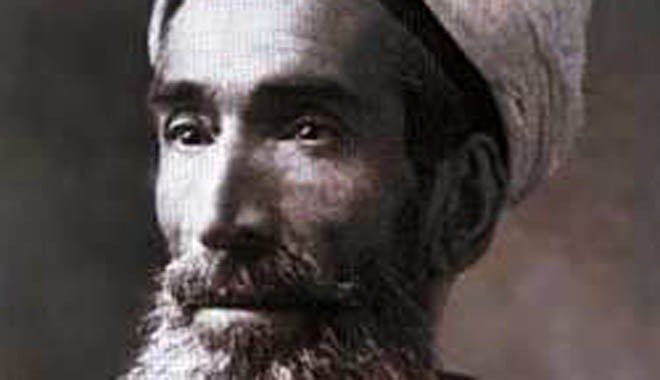
The works and times of Allami Abul Fazal

Scantily researched and rarely mentioned these days is a significant figure of the medieval history, Allami Abul Fazal, the author of Akbarnama and Ain-i-Akbari. Our academia’s general indifference to such personalities as Abul Fazal may be attributed to a receding interest in Persian language and literature. Our utilitarian approach to knowledge, and in the process ignoring our history and heritage, has cost us dearly.
Recently, the head of the Translation Bureau of Iran, Dr Nasiri, a historian by training, visited the GC University Lahore’s Persian department on the invitation of Professor Iqbal Shahid. We talked about Ain-i-Akbari and the second part of Akbarnama, which deals with history as a form of knowledge, and about how rarely medieval historical narrative transcends the general practice of chronicling events of certain time period in sequential order. We agreed that Abul Fazal formulated a theory of history, which is yet to be analysed and deliberated on by historians, particularly those interested in the philosophical undercurrents of the subject.
I found the conversation to be illuminating. It motivated me to write this week’s column on Abul Fazal, which I dedicate to Prof. Iqbal Shahid, a scholar in Persian literature of extraordinary stature. It was because of him that I could meet Dr Nasiri.
Born in January 1551 to Shiekh Mubarak in Agra, Abul Fazal inherited from his father and grandfather the tradition of ‘mysticism and toleration, of universal learning and cosmopolitanism’. His was a Hejazi family that had migrated to India from Iran and had settled in Nagaur near Ajmer. He was privileged to be a son of such a celebrated scholar as Sheikh Mubarak. Also, he was the younger brother of Abul Faizi, a renowned Persian poet of his age.
At a young age of 20, Abul Fazal had earned the reputation of an erudite scholar, with a wide range of scholarly pursuits, coupled with profound thinking. His brother Faizi presented him to Akbar in the 19th year of the emperor’s reign in 1574, and very soon he became the Akbar’s alter ego, even more powerful than the prime minister. He obtained a high rank of 4000 horses and distinguished himself as a soldier and a civilian.
Besides being a writer and a scholar, Abul Fazal was ‘a man of affairs’ with a profound understanding of the behaviour of states and the course of history.
He acquired unusual dexterity as a prose writer, which was matched by none of his contemporaries. Thus his works are important, for they are a great source of medieval history and are literary masterpieces. Apart from Akbarnama and Ain-i-Akbari, Abul Fazal wrote a collection of letters, called ‘Makatib-i-Allami’, ‘Insha-i-Abul Fazal’ or ‘Makatib-i-Abul Fazal’. The collection of letters is divided into four Daftars. These letters were written to kings and amirs on behalf of Akbar. A collection of his private letters has also been compiled; title Rukiat-i-Abul Fazal, which too is of great importance as a primary source of history.
As a prose writer, Abul Fazal was a laureate of great merit. Shah Nawaz Khan, the author of Ma’asir ul-Umara, praised his work and wrote, "As a writer Abul Fazal stands unrivalled. His style is grand and is free from the technicalities and flimsy pettiness of other munshis (scribes) and the force of his words, the structure of his sentences and the suitableness of his compounds and the elegance of his periods are such that it would be difficult for anyone to imitate him."
Abdullah Khan Uzbek used to say that he was more afraid of the pen of Fazal Khan (Abul Fazal) than the sword of Akbar.
Abul Fazal began writing Akbarnama and Ain-i-Akbari in 1595 after Mughal Emperor Akbar directed him to "write with the pen of sincerity the account of the glorious events and of our dominion increasing victories". E. Sreedharan is of the view that "Few histories could have been written from a wider background of education and experience, few prepared more diligently, elaborately and conscientiously than the Akbarnama and Ain-i-Akbari". He finished writing it in seven years and presented it to the king in 1602.
Also read: A forgotten leaf of medieval history-II
A detailed analysis of these works requires another column. This week however I will focus on a few minor aspects of his personality: He is known in history as a glutton who could consume 30 pounds of food everyday. He had four wives; one of them was a Hindu. The power and pelf that he enjoyed earned him several enemies; Prince Saleem, the crown prince, one of them.
Saleem ordered Bir Singh to murder Abul Fazal in 1602, the year he completed his magnum opus. His death came as a big shock to Akbar.
Obviously Abul Fazal produced some of the greatest works of history sponsored by kings and financed by the state.
-- To be continued